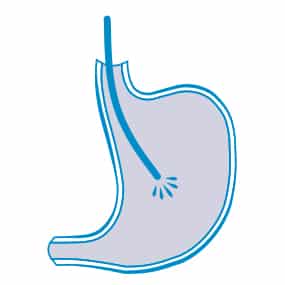
Are you a middle-aged woman experiencing digestive discomfort, or are you considering weight loss surgery? At Sydney Bariatric Clinic, we understand that understanding your inner health is key. A Gastroscopy, also known as an endoscopy, is a very common and safe procedure that allows us to gently examine your upper digestive system to ensure everything is healthy and ready for your journey.
What is a Gastroscopy?
A gastroscopy is a procedure where a highly skilled doctor uses a thin, flexible tube called a gastroscope. This tube has a tiny camera and a light at the end. It’s carefully guided through your mouth, down your oesophagus (food pipe), into your stomach, and then into the first part of your small intestine (duodenum). It’s like a gentle internal camera inspection!
Why Might You Need a Gastroscopy?
There are several important reasons why a gastroscopy might be recommended, especially for women considering or after weight loss surgery:
Before Weight Loss Surgery:
After Weight Loss Surgery:
Beyond Weight Loss Surgery:
You might also have a gastroscopy if you experience:
A gastroscopy is much more accurate than an X-ray for detecting diseases and allows us to take tiny tissue samples (biopsies) if needed for further analysis.
What to Expect During Your Gastroscopy in Sydney
Your comfort is paramount. The procedure is typically done as an outpatient visit, meaning you go home the same day.
- 1
Preparation: Before the gastroscopy, your doctor will give you a mild sedative to help you relax and feel comfortable. A local anaesthetic spray may also be used to numb your throat.
- 2
The Procedure: Once you’re relaxed, the gastroscope is gently guided into place. The camera sends clear images to a screen, allowing your doctor to carefully examine the lining of your digestive system. If needed, small tissue samples (biopsies) can be painlessly taken.
- 3
Duration: The entire procedure usually takes only about 15-30 minutes.
- 4
Afterwards: You’ll rest in a recovery room until you’re fully awake and alert. You’ll be able to go home the same day, but it’s important to have someone drive you as the sedative will still be in your system.
Is Gastroscopy Safe?
Gastroscopy is generally a very safe procedure with a low risk of complications. Possible, but rare, risks include bleeding, a tiny hole in the digestive tract (perforation), or an allergic reaction to the medication. Our experienced team will discuss all potential risks with you.
Most women recover quickly and easily. You might feel a mild sore throat or some bloating for a day or two, but these symptoms usually resolve quickly. You’ll receive specific instructions on what to eat and drink to ensure a smooth recovery.
Frequently Asked Questions (FAQ)
Schedule Your Gastroscopy Consultation in Sydney
If you’re experiencing digestive concerns or preparing for weight loss surgery, a gastroscopy can provide invaluable insights. Contact Sydney Bariatric Clinic to discuss your needs with our caring and expert team, led by Dr. Brendan Ryan.
Sydney Bariatric Clinic
Phone: +61 2 9687 7019